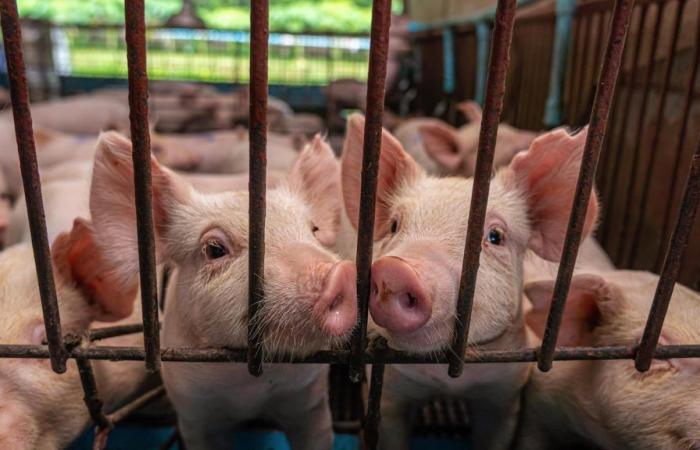Quebec’s Minister of Agriculture, the Bloc Québécois and the Union des producteurs agricoles are calling on Health Canada to suspend its reform on animal cloning, which was carried out without consulting them. Ottawa wants to remove the obligation to declare and assess the risks of meat resulting from the cloning of beef and pork.
The federal government is expected to consult Quebec and partners on such an important subject.
writes to Radio-Canada the office of the Minister of Agriculture of Quebec, André Lamontagne. Consumer confidence is at stake.
We hope that Health Canada can review its work plan in order to consider all stakeholders in its process.
Bloc Québécois spokesperson for Agriculture Yves Perron can’t believe itOttawa is, once again, proceeding with the greatest discretion to announce major changes
.
Last summer, it was the withdrawal of the obligation to declare new forms of genetically modified organisms (GMOs), at the request of the industry, which caused controversy.
How can we deregulate the control of animal cloning without consulting agricultural producers? Seriously. It’s a republic of bananas.
The Quebec Food Processing Council learned of the reform project on Wednesday, one month after the public consultation closed. The Canadian Federation of Agriculture was informed on Thursday by the Bloc Québécois.
Yves Perron is concerned about the traceability of food and for export to countries that prohibit the cloning of farm animals, such as those in the European Union. Who do we work for? Why are we doing this?
he asks. Radio-Canada asked Health Canada the question to find out the origin of this reform, but the response is slow in coming.
Open in full screen mode
With the reform, a Canadian consumer will not be able to know if the beef he buys comes from cloning. (File photo)
Photo : Radio-Canada / Dennis Kovtun/CBC
Ottawa ensures that foods from cloned animals are just as healthy and safe as traditional foods. Cloning makes it possible to disseminate the genetics of more robust animals.
However, studies raise concerns about the health of cloned animals, if only from an ethical point of view.
Producers and consumers perplexed
At the Atwater market, the manager of the Saint-Vincent butcher shop, Danny Desforges-Dodge, wonders: Now it’s a copy. We no longer know what it is… It’s chemical, it’s scientific.
The butcher prides himself on offering certified organic meats and anticipates customer questions.
We feel like we’re going to be asked even more questions and it could be complicated, frankly.
I’m not sure, unless someone shows me that it’s really good and with such good prices
reacts a clientele of the butcher’s shop.
It’s certain that we can’t stop progress, that’s for sure. But, personally, I like nature better
says another customer.
At the Brovin farm in Saint-Hyacinthe, which raises calves, co-owner Caroline Brodeur says neither for nor against
. What matters, according to her, is animal welfare, the way the animal will be fed
.
The breeder doesn’t plan on cloning anytime soon, but she admits that doing so can give consumers more options.
Maybe this will open the door to a new, more affordable meat niche.
believes his partner Vincent Deslauriers. At that point, it will be up to the consumer to determine.
With the collaboration of Kim Vermette and Gabrielle Proulx






